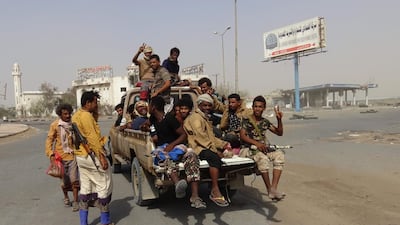A ceasefire deal brokered between the two warring sides in Yemen in the port city of Hodeidah is working, the UN’s special envoy to the country Martin Griffiths said on Tuesday.
Pro-government officials had reported that clashes took place minutes after the agreement was due to come into force at midnight local time.
But after the initial reports of fighting, calm ensued in the Red Sea city from 3am, a military source loyal to the internationally recognised government told AFP.
Mr Griffiths said skirmishes had taken place between 1am and 2am local time at the frontline but, so far, the truce was holding.
“I’m remarkably familiar with ceasefires that don’t work and this one does seem to be working so far,” he told BBC radio. “It is the first time the skies have been quiet over Hodeidah for many, many months. So far, so good. Fingers crossed.”
_______________
Read more:
Calm in Hodeidah following ceasefire implementation
Analysis: Yemen's Houthi rebels face a choice of military or political power
War-ridden Yemen's other frontline - the central bank
Yemen government says clashes erupt in Hodeidah in truce violation
Yemen government warns Houthis against failure to abide by Hodeidah deal
_______________
He said the skirmishes were a result of the two sides being in close proximity to each other and responding to what they saw as “provocation”.
But he said that the pattern so far was “positive”.
Mr Griffiths said he hoped the Hodeidah ceasefire, which was agreed last week in Sweden, would lead to complete disengagement and talks next month to reach a political solution to the war, which began in 2015.
The attitudes of countries involved in the war, namely Iran, Saudi Arabia and Britain, are “vitally important because they are powerful”, the UN envoy said, but added that the ceasefire had been achieved between the two Yemeni parties.
Hodeidah is a strategically important city in the conflict and handles 80 per cent of essential goods going into Yemen.
The Iran-backed Houthi rebels took control of the port in 2015 and the Yemeni government have been trying to take it back since June this year.

The war has led to a humanitarian crisis in the Arab world’s poorest country, with 75 per cent reliant on aid. About 14 million of the population are at risk of famine and 85,000 children under the age of five have died from starvation, according to Save the Children.
Mr Griffiths said “keeping the faith” in Hodeidah was essential to avoid a large-scale famine in the country.



